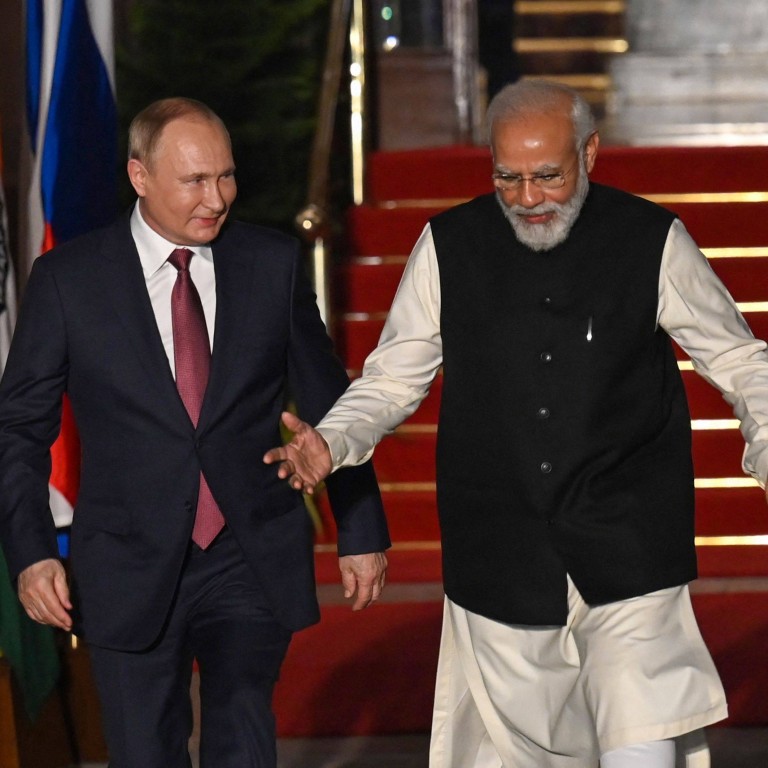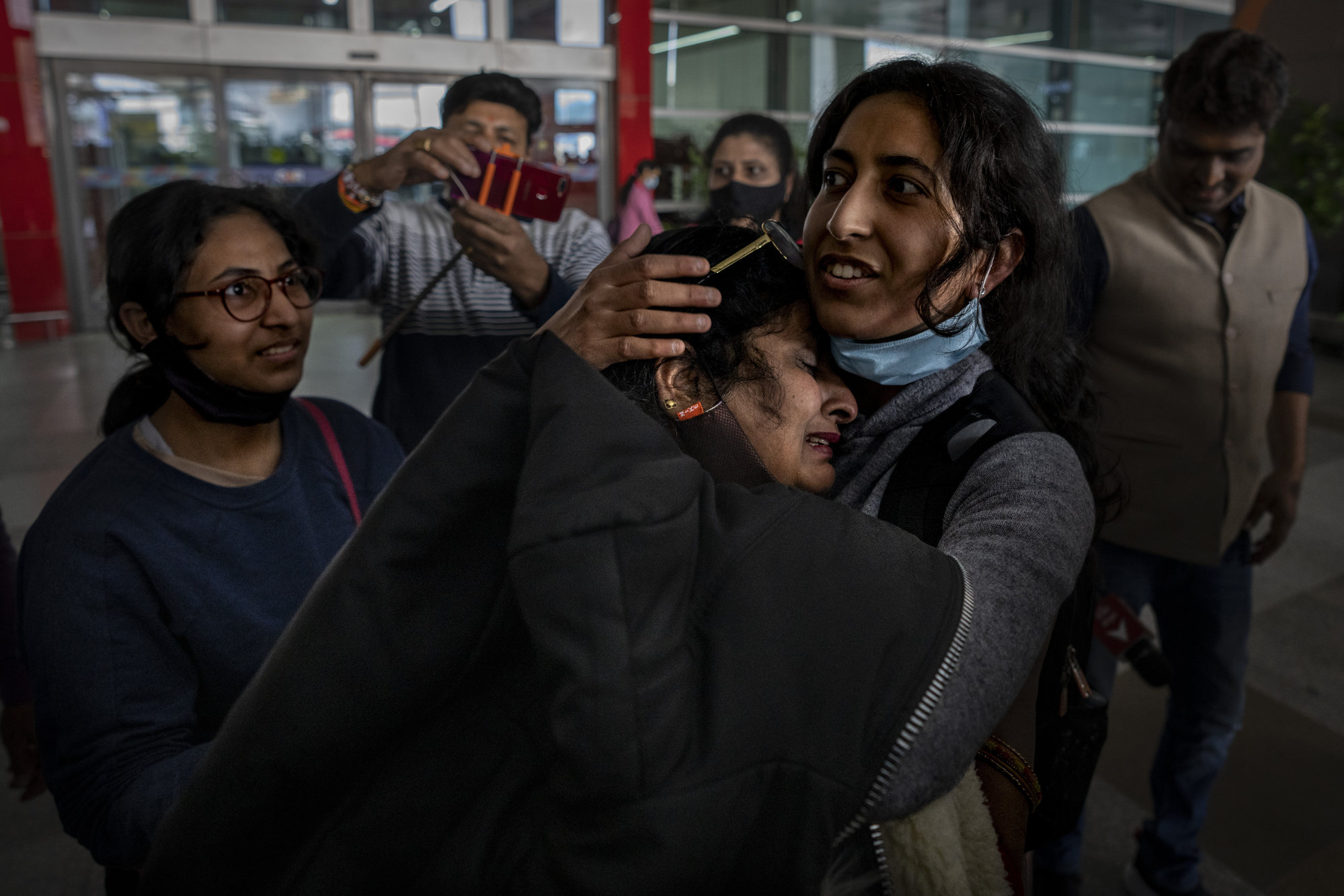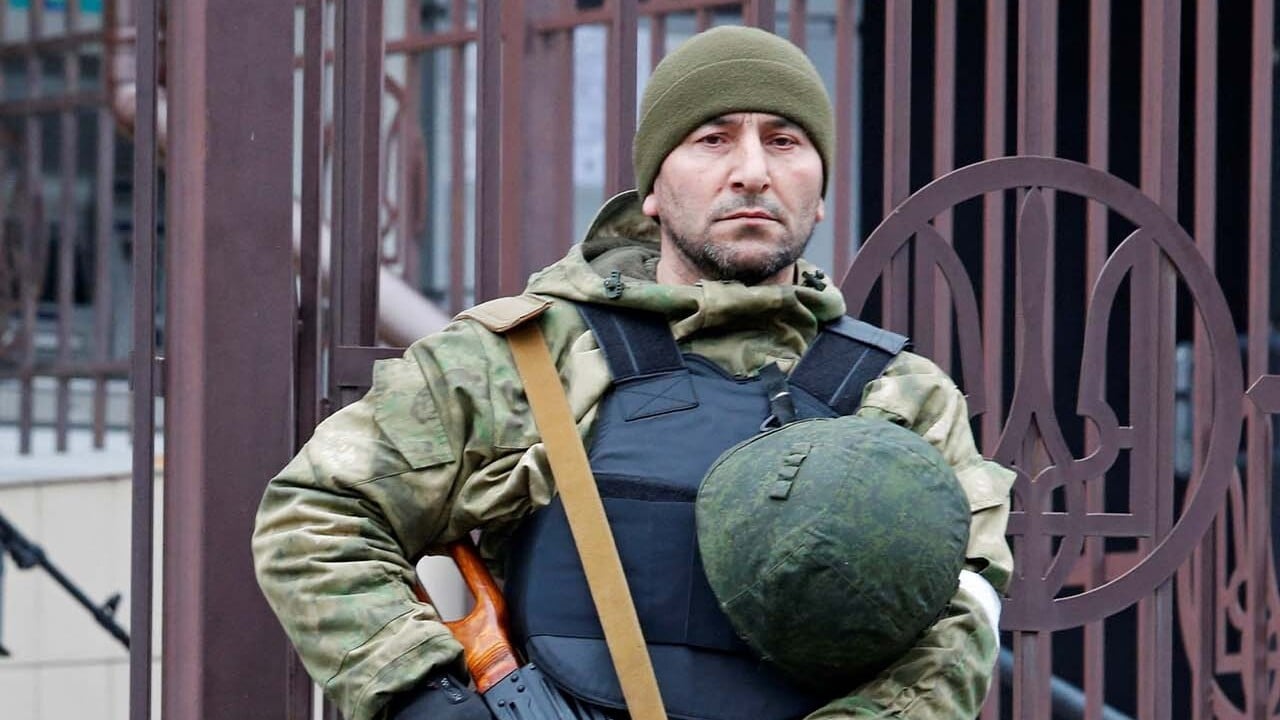
Russia’s invasion of Ukraine: India backs off berating Putin to get weapons for China border fight
- India abstained twice on a UN resolution denouncing Russia’s aggression as it needs the country’s weaponry amid border tensions with Beijing
- Moscow has been one of New Delhi’s biggest arms suppliers since the Cold War and also backed the government’s hardline policies in Kashmir
Moscow has been one of India’s biggest weapons suppliers since the Cold War, with more than half of the country’s fighter jets and almost all of its tanks coming from Russia.
Indian students ‘held up’ at border after New Delhi abstains from UN vote
India raised eyebrows over the weekend when it joined China and the United Arab Emirates in abstaining from voting on a draft resolution at the United Nations Security Council resolution condemning the invasion, which was ultimately vetoed by Russia.
On Wednesday, New Delhi again abstained on a UN General Assembly resolution denouncing Russia’s aggression against Ukraine.
India’s External Affairs Ministry didn’t immediately respond to a request for comment. Foreign Secretary Harsh Vardhan Shringla said on Tuesday that New Delhi’s position on Russia was based on “certain very careful considerations” when it came to UN resolutions.
“We will consider all of them in their entirety and take decisions in our best interests,” he said.
Why Putin-Modi arms deals are a problem for both China and the US
“It’s hard to imagine Washington moving away from its determination to expand defence and security ties with India over the past 20 years,” said Nilanthi Samaranayake, Director of the Strategy and Policy Analysis programme at CNA, a research organisation in Washington DC.
“India has a history of pursuing its own path in international affairs, despite external pressure.”
The Indian government is also in talks with the Reserve Bank of India to allow rupee-rouble trade to bypass sanctions against Moscow, Business Standard newspaper reported on Thursday, citing people it didn’t identify.
However, this wouldn’t be the first time such an arrangement has been worked out. Both sides have paid for everything from tea to weapons using this route in the past.
Indian policymakers have mostly focused their response to Russia’s invasion on evacuating at least 4,000 Indian students stranded in Ukraine, an issue with domestic political ramifications as voting takes place in five state elections.
Four federal ministers have been dispatched to countries sharing borders with Ukraine to help with getting Indian citizens out.
US’ Middle East allies dither, as it seeks to punish Russia over Ukraine
New Delhi denied on Thursday Russian claims that Ukraine was holding Indian students hostage in Kharkiv, instead thanking the country for its help in evacuations from the embattled city.
“We note that with the cooperation of the Ukrainian authorities, many students have left Kharkiv yesterday,” said foreign ministry spokesman Arindam Bagchi.
“We have not received any reports of any hostage situation regarding any student,” he added.
New Delhi’s declaration came after Moscow said Indian students in Kharkiv were being used as a “human shield” by Ukrainian security forces.

“The Kyiv authorities are fully responsible for this,” it added, saying Putin told Modi that Moscow was trying to organise the evacuation of Indian students from Kharkiv via a humanitarian corridor.
A brief statement from Modi’s office after the call said only that “many Indian students are stuck” in the city, and that the two leaders discussed their evacuation.
Bagchi noted on Thursday: “A large number of Indian nationals have been evacuated from Ukraine in the last few days. We appreciate the help extended by the Ukrainian authorities to make this possible.”
Additional reporting by Agence France-Presse


